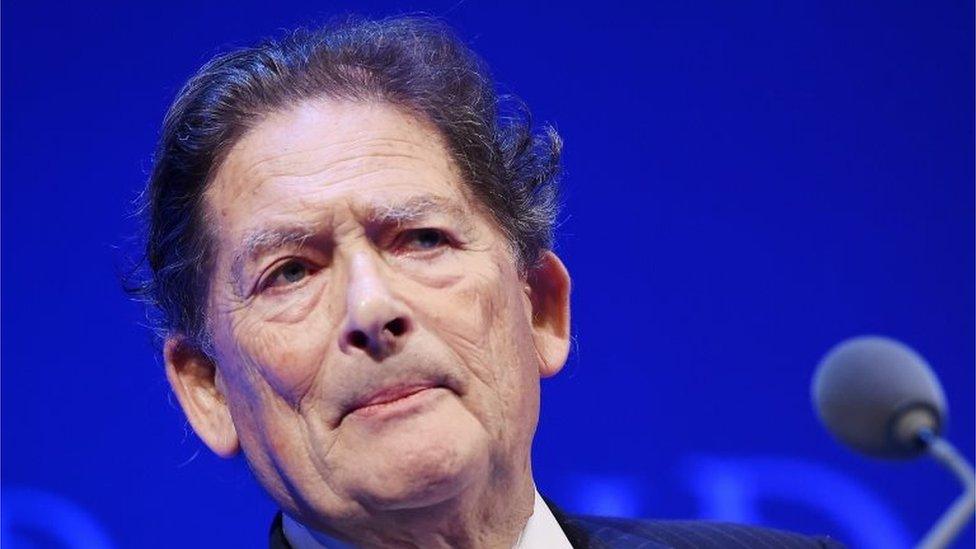Tax credits: George Osborne 'comfortable' with 'judgement call'
- Published
George Osborne: Tax credit change 'a judgement call'
George Osborne says the decision to push ahead with tax credit cuts is a "judgement call" he is "comfortable" with despite pressure over the plans.
He told the Commons Treasury committee the decision came down to a "simple judgement" on whether the UK's welfare system was "too expensive".
The chancellor urged peers not to "second guess" the Commons amid efforts to kill off the measure in the Lords.
Labour opposes the cuts and some Tories have also warned against them.
Mr Osborne refused to hand over an analysis of the impact the changes will have to the committee, saying: "I have provided a huge amount of information, but it comes down to a very simple judgment, which is do you think our welfare system is too expensive?
"Do you think we should move to a higher wage, lower welfare economy and ultimately that's the decision we are all being asked to take as Members of Parliament," he said.
"We all know this is fundamentally a judgment call and I'm comfortable with the judgment call that I've made and that the House of Commons supported this week."
'Worse off'
Labour MP John Mann said the tax credit row risks becoming a "political disaster" for Mr Osborne and the country - and he urged the Chancellor to "avoid Mrs Thatcher's mistakes with the poll tax".
Mr Osborne said the lowest paid were the most affected when a country could not "live within its means".

Lord Lawson is calling for tax credit cuts to be "tweaked"
"They are the people who lose their jobs, they are the people who suffer when the economy fails, when the country can't live within its means, when the welfare bill gets out of control. I feel very strongly about that," he added.
Former Conservative chancellor Lord Lawson is among those urging Mr Osborne to find ways to limit the impact of the cuts, which come into effect in April, on low earners.
He told BBC Radio 4's Today programme: "You cannot remove these tax credits without people being worse off."
But Lord Lawson hit out at "wholly wrong" attempts to kill off the policy altogether in the House of Lords, arguing that they should be "tweaked" to protect poorer households.
Liberal Democrats in the House of Lords have tabled a so-called "fatal motion" which would axe the £4.4bn cut altogether if approved on Monday.
Labour and crossbench peers are also pushing votes that would refuse to sign off on the policy until the government had considered changes.
Prime Minister David Cameron has warned the upper chamber not to defy convention that it does not block financial measures.
The independent Institute for Fiscal Studies calculates that the higher national minimum wage promised as part of the reforms would not compensate entirely for the loss of tax credits.